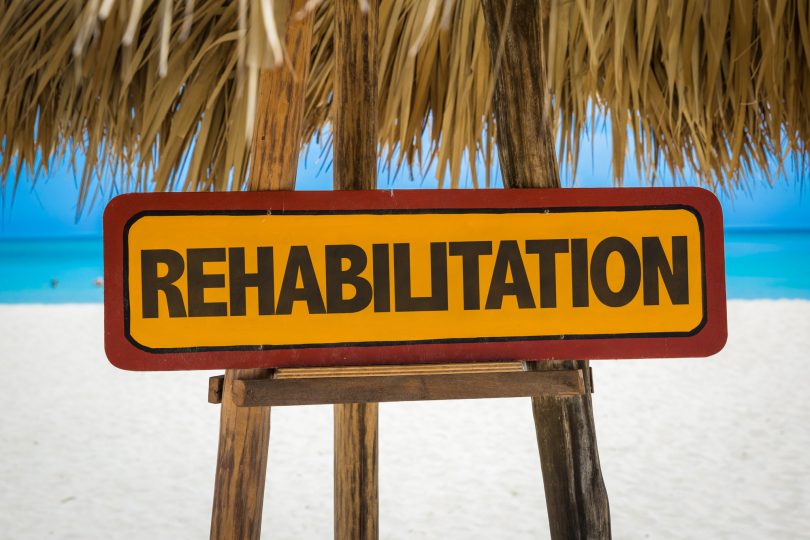Addiction is one of the most common deadly conditions in the United States. Unfortunately, 1 in 10 Americans will face this battle at some point in their lives.
If you, like many others, have somebody in your life who needs treatment, convincing them to go to rehab is not always easy. However, with the right tools at your disposal, it may work. Here’s what you need to know!
Signs of Addiction
Before trying to convince someone to go to rehab, you first need to know that your loved one is suffering from addiction. You may already have the conclusive evidence you need. Either way, understanding the signs and symptoms is quite helpful to determine if your loved one needs to go to rehab.
Some of the most common signs of substance use disorder (SUD) include:
- Constantly lying about whereabouts
- Routinely complaining of illness (withdrawal symptoms, after-sickness, etc.)
- Missing work or personal obligations
- Choosing substances over historic pleasures (hobbies, family time, etc.)
- Physical signs (red eyes, bad breath, etc.)
Of course, there are also many substance-specific behaviors. These include running out of prescriptions too quickly, obvious alcohol abuse, and more.
Moreover, you may also see signs that could indicate mental illness, as well as addiction. While these often coincide, loss of interest, mood swings, anxiety, and depression could be signs of addiction as well. However, these don’t spell out addiction on their own.
If these signs add up, then it’s quite likely your loved one is suffering from SUD. In that case, it’s essential that they get help as soon as possible.
How to Convince a Loved One to Go to Rehab
The longer your loved one goes without treatment, the greater risk they face of long-term health consequences, overdose, or even death. Just this past year, we’ve seen over 107,000 overdose deaths in the US. Each one could have been avoided with treatment, which is what we’re here to discuss.
Plan an Intervention
Interventions are by far the best way to convince somebody to go to rehab. However, they need proper execution to be the most effective.
When planning an intervention, only invite people who will be productive to the cause. Remember, you’re trying to convince somebody who presumably doesn’t want to go to rehab to make such a dramatic lifestyle change. That’s no easy feat.
Therefore, if you believe somebody may be detrimental to the cause, they don’t belong there. For example, if somebody may cause unnecessary tension, has a short temper, or may cause your loved one distress, don’t invite them. Even if it hurts their feelings, this intervention is not about them.
When inviting people who have your loved one’s best interest at heart, tell them the message you want to convey. Ask them to prepare statements and send them to you ahead of time.
Also, make your timeline as short as possible. You don’t want to get caught before the intervention, and you don’t want to waste time. The longer your loved one goes without treatment, the more dangerous their situation becomes.
Find the Right Addiction Treatment
Before the intervention, it’s important to find a treatment plan for your loved one. Ideally, this should be an inpatient program that covers all of their specific needs.
The reason we recommend residential programs is that detoxification is dangerous and is best performed with medical oversight. Also, an inpatient program will offer a controlled, substance-free environment during the most intense part of recovery.
However, any treatment is better than none. We recommend having backup options available in case your loved one refuses to attend an inpatient program. Intensive outpatient programs (IOP) or partial hospitalization programs (PHP) can be just as effective without the same level of commitment or disruption to your loved one’s life.
Also, if your loved one has special needs, including an underlying mental illness, certain religious or cultural accommodations, or anything else, make sure you find a program that meets these needs.
Hosting the Intervention
First, you should plan to host this intervention at the right time. If possible, this is when your loved one is sober. This could be first thing in the morning, immediately after work, or whenever is most appropriate.
Ask your loved one to sit down and begin reading your prepared statements. Make sure that everybody stays on message and remains calm. If it becomes hostile, do your best to de-escalate the situation.
If they run away, don’t pursue them or escalate. You’ve planted the seed, so don’t risk making the situation unsafe. They may come around on their own.
Most importantly, offer your ongoing support in any capacity you can commit to. Often, rehab isn’t what scares people out of finding treatment, but what comes after. Lay their worries to rest and reassure them of your ongoing support later on.
The more specific, the better. This could be anything from offering to remove them from bad situations to offering them a place to live when they return. Again, whatever you can manage.
Find the Help They Need Today
Now that you know how to convince someone to go to rehab, put these steps into practice right away. The longer you wait, the more difficult and dangerous the situation becomes. Find the right program, invite the right people, and intervene as soon as possible.
Stay up to date with our latest recovery tips, and don’t hesitate to contact us with any questions or to verify your loved one’s insurance!

















